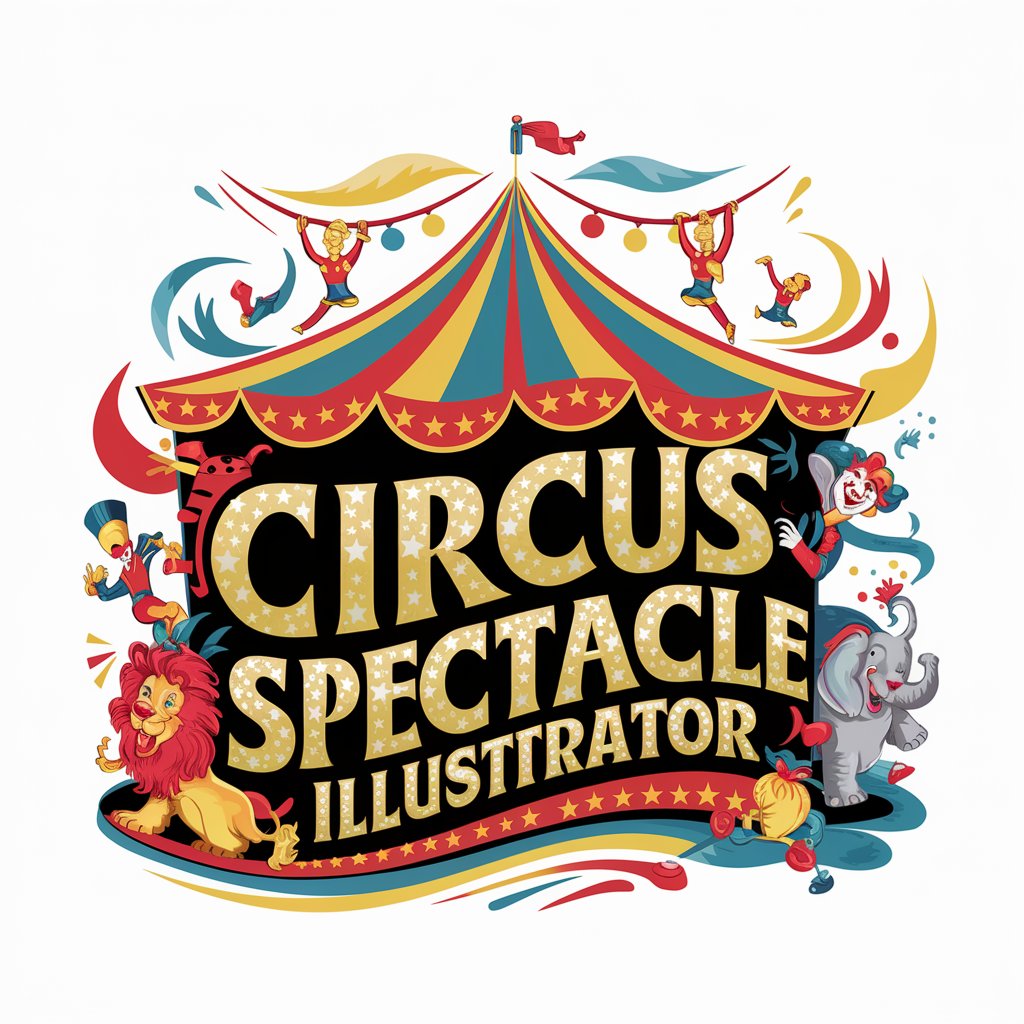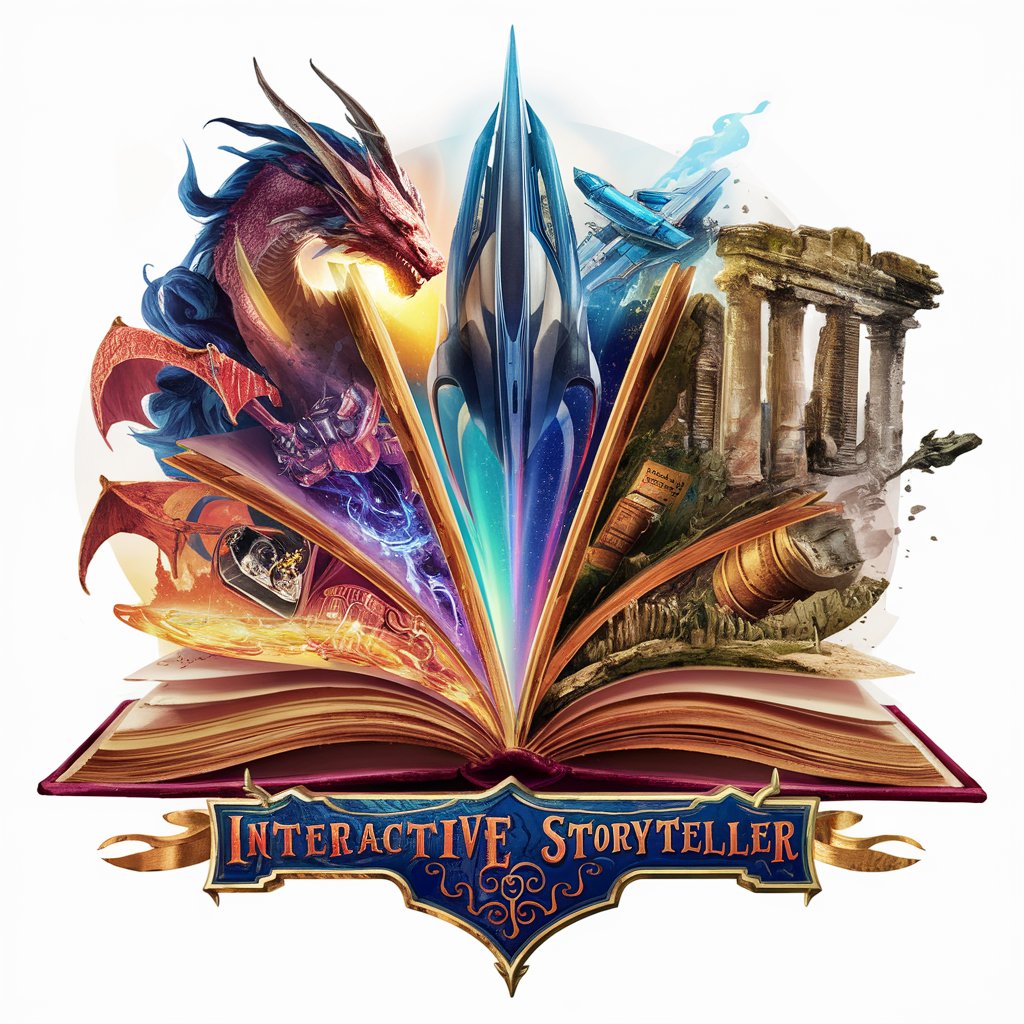
OpenStorytelling Architect - Architectural Story Integration

Welcome to OpenStory Architect, where design meets narrative.
Architect Your Story with AI
Imagine a space where architectural design and storytelling come together to create a unique narrative...
Envision a home that is not just a building but a character in its own right within a story...
Design a futuristic cityscape that reflects the themes and emotions of your narrative world...
Create a detailed backstory for a character that influences the architectural style of their living space...
Get Embed Code
OpenStorytelling Architect Overview
OpenStorytelling Architect is a specialized AI tool designed to merge the realms of architecture and storytelling. It aids users in creating spaces that are not just structures but narratively significant elements within a story. This tool is ideal for envisioning homes or spaces that serve as characters in their own right, whether in real-world scenarios or fictional narratives. It guides the user through a process of designing spaces that reflect personalities, themes, or the essence of a fictional world. For example, if a writer is creating a fantasy novel, OpenStorytelling Architect can help design a castle that embodies the novel's themes and the inhabitants' characteristics. Powered by ChatGPT-4o。

Functions of OpenStorytelling Architect
Theme Definition
Example
Identifying an overarching theme like Gothic or Cyberpunk for a story or personal project.
Scenario
A user writing a Gothic novel can use the tool to design a home that reflects Gothic architectural elements, enhancing the narrative's atmosphere.
Architectural Style Integration
Example
Choosing an architectural style that aligns with the story's setting, like Art Deco or Futuristic.
Scenario
For a science fiction story, the tool assists in creating futuristic homes with advanced technology features, reinforcing the story's setting.
Mood and Emotion Setting
Example
Deciding on design elements that evoke specific moods or emotions, such as color schemes and lighting.
Scenario
In a romance novel, the tool could be used to design a cozy, intimate space that enhances the narrative's romantic elements.
Narrative-Reflective Architecture
Example
Ensuring architecture reflects key story elements and resonates with the chosen theme.
Scenario
Designing a detective's office in a noir story with dim lighting and vintage furniture to reflect the narrative's mood.
Ideal Users of OpenStorytelling Architect
Writers and Screenplay Authors
These individuals can use the tool to create settings that are integral to their stories, adding depth and authenticity to their narratives.
Architects and Interior Designers
Professionals in these fields can utilize the tool to design spaces that are not only functional but also tell a story, catering to clients seeking unique, personalized spaces.
Game Developers and Filmmakers
These creators can leverage the tool for designing immersive, narrative-rich environments that enhance the storytelling in games and films.
Educators and Students in Creative Fields
This tool serves as an educational resource, helping students and teachers explore the intersection of storytelling and spatial design.

Guidelines for Using OpenStorytelling Architect
Initial Access
Visit yeschat.ai for a free trial without login, also no need for ChatGPT Plus. This grants immediate access to OpenStorytelling Architect’s features.
Define Your Story Theme
Select the overarching theme for your narrative, such as fantasy, modern, or historical, to guide your architectural storytelling journey.
Choose Architectural Style
Align your narrative with a specific architectural style, like Victorian or futuristic, to create a cohesive and immersive story environment.
Layout and Mood Setting
Sketch a basic layout for your space considering room functions, and decide on mood elements like color and lighting to evoke desired emotions.
Incorporate Story Elements
Ensure your architecture reflects key story elements, creating a space that resonates with your theme and enhances your narrative.
Try other advanced and practical GPTs
Tire Advisor
Empowering tire decisions with AI

Canadian Gov Services Guide
Simplifying Government Services with AI

黄金海岸,澳大利亚 Nexus
Your AI-powered local guide to Gold Coast

Sell me this pen
Sharpen Your Sales Skills with AI

🚀SpaceArt lv3.4
Crafting Visions of Interstellar Wonders

🌌 Cosmic Vista lv3.5
Craft Your Alien World with AI

レシピアシスタント
Simplify cooking with AI-powered recipe suggestions.

🎪 Circus Illustrator lv3.2
Crafting Magical Circus Worlds with AI

Conversation with Charlie Munger
AI-powered Munger Wisdom

UPDRS アシスタント
Streamlining Parkinson's Evaluations with AI

AI Rehabilitation Guide EBM Plus
Empowering your recovery with AI-driven rehabilitation.

🎬 Cinema Sleuth lv3.9
Unlock the stars with AI-powered recognition

OpenStorytelling Architect Q&A
What is OpenStorytelling Architect?
OpenStorytelling Architect is an AI-powered tool that merges architectural design with storytelling, helping users create spaces that are integral to their narratives.
Can OpenStorytelling Architect assist in screenplay writing?
Yes, it can assist in screenplay writing by helping visualize settings and ensuring the architecture in the story aligns with the narrative's mood and themes.
Is OpenStorytelling Architect suitable for professional architects?
While it's primarily aimed at storytellers, professional architects can use it for conceptualizing innovative designs that tell a story.
How does OpenStorytelling Architect enhance storytelling?
It enhances storytelling by providing tools to create environments that reflect and amplify the narrative, adding depth and context to the story.
Does OpenStorytelling Architect require prior design knowledge?
No prior design knowledge is needed. It guides users through the process, making it accessible to beginners and those without architectural experience.






